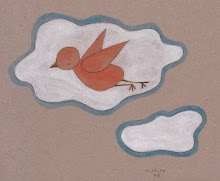Reading through my classmates' blog posts about where they get their news was both reassuring and worrisome for me. It makes me feel better about myself to know that I'm not the only one who could improve her knowledge of current events, but also slightly worried that the general concensus is more or less the mindset of: "I'm busy. If something is important, I'll hear about it eventually." Don't get me wrong, mine would probably be the first name on the list of such thinkers, but I wish that it weren't, and as I noticed, many of my classmates wish the same thing. So why do we still carry this mentality? Why don't we do something to change it? I don't have an answer, but I think it's due in part to the fact that our culture, particularly Internet access within our culture, allows it, or at least makes it easy, to think this way. We have so much access to information that it can be difficult to filter through news and separate the important from the trivial, especially when society seems to value the more trivial end of the spectrum. But, what's interesting, is that this mentality is valid. The news will eventually find us. This is almost inevitable as every corner of the earth is filled with something to look at or to learn about or to listen to. Billboards, posters, televisions, radios, passerbys, friends, family, magazine covers, newspapers, and the internet are just a few of the constant sources of background noise (or news) that we get each day. So, while partaking in a more passive style of news-gathering may not be the most responsible or commendable method, it does seem to be the most logical. And how can anyone argue against logic? Hmmm . . . this seems like a bit of a catch 22 . . .
I think it'd be interesting to learn where and how people like Sullivan, Hedges, and Carr get their news and what they think about the passive/active approaches to new-gathering. I'm almost certain Hedges would condemn our generation (myself included) for being lazy and uninformed citizens. Sullivan would probably argue for the beautiful ambiguity that stems from our freedom to search the world (re: the web) and learn about what interests us as it is happening. Carr then, - always the level-head in this trio - would most likely express sentiments similar to my classmates' and mine. That is, he'd argue the idea of convenience, but long for news that is either decisively satisfying or else underwelming, just so he'd have a clear take on the issues.
Subscribe to:
Post Comments (Atom)

Thoughtful post, Sadie. I like that you consider the question of passive news consumption and some of its benefits. I like that you ask questions. It seems to me that the problem with letting the news find us is that we have more of a choice in active consumption, as we get to pursue our own agenda. Passive consumption often follows a different agenda, be that political or commercial, etc. In other words, if we're letting the news find us, then what sort of news actually does find us? You got me thinking about this.
ReplyDelete